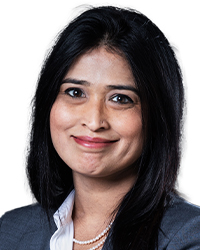As India pursues its ambition of becoming a USD30 trillion economy by 2047, it needs to understand the different tax policies of developing and developed countries. New tax models must be adopted to achieve robust inclusive growth in an era of globalisation.

Founder and managing partner
BMR Legal
In developing countries, tax policies often accept what is possible rather than pursue the optimal. A developing nation today, India aims to increase the size of its economy tenfold within 25 years. With 65% of the population under 35, this target is achievable. However, government spending will be a critical factor in propelling growth. This reflects the disparity in infrastructure between rural and urban India and their different populations. Globally, government spending relies on stable funding from taxation, especially after the financial crisis.
For decades, debate has been ongoing as to the impact government spending has on economic growth. No agreement has yet been reached. A study of 2011 to 2020 data from the South Asian Association for Regional Co-operation nations, concluded that there was a positive correlation. An Organisation for Economic Co-operation and Development paper suggested that it is the mix of spending that matters.
Comparative studies confirm that tax structures generally track the levels of economic development. A feature of such a model is that in developing economies consumption taxes are more significant than those on income and profits. In contrast, income taxes are important in industrial economies, where they are major instruments of income redistribution.
According to an IMF study, developing countries face formidable challenges in establishing efficient tax systems. Most workers in these countries are employed in agriculture or small, informal enterprises, with many paid on a casual basis. Calculating the income tax base is therefore hard. Of India’s 1.4 billion population, 60 million people have filed returns for the year ending in March 2023. Of these, 47 million people have paid no taxes.

Partner
BMR Legal
The lack of data from the informal economy in many developing countries prevents policymakers from assessing the impact of change on the tax system. Marginal changes are often preferred over major structural reforms, even when the latter are clearly needed. This perpetuates inefficient tax structures and the uneven distribution of income. Although raising tax revenues in such a situation ideally calls for greater taxation of the rich, their economic and political power prevents reforms that would increase their tax burdens.
Developing countries rely more on foreign direct investment for growth. However, taxes paid by multinational companies are considered a mobile base for tax policy purposes. An increase of less mobile bases in the tax mix ensures that the revenue system becomes more resilient and less vulnerable to the effects of globalisation. Compared to income taxes on companies, taxes on immovable property, taxes on natural resource rents, and value-added tax (VAT) have smaller mobile bases. VAT is levied on a destination basis, meaning the tax base is less vulnerable in a globalising economy. Taxes on rents become less of a distortion.
Maintaining inclusiveness is important when looking at shifts in the tax mix. This can be achieved by eliminating regressive tax expenditures and broadening tax bases. The 2023 budget of the Ministry of Agriculture and Farmers Welfare, including agricultural education and research, is about INR1.25 trillion. With India’s emphasis on agriculture, a policy for agriculture taxation would reduce its dependence on more mobile tax bases. Another area that should be examined is disguised expenditure through prohibitive taxes on businesses deemed to have negative social influence. That industry then declines, eliminating the tax and data collection it previously produced. Taxing online gaming is an example.
Some studies suggest that regressive fuel subsidies should be reduced. Environmental taxes, including carbon levies, could instead expand revenue. Recent economic thinking highlights the importance of effective capital taxation as part of the overall tax mix.
As India moves towards becoming a USD30 trillion economy by 2047, its tax mix needs to change. Reliance on corporate taxes needs to make way for more sustainable means of funding government spending to boost the economy.
Mukesh Butani is the founder and managing partner and Seema Kejriwal is a partner at BMR Legal.

13 A-B, Hansalaya Building
15, Barakhamba Road
New Delhi – 110 001, India
Contact details:
T: +91 11 6678 3000
E: sangeeta.kumar@bmrlegal.in



























